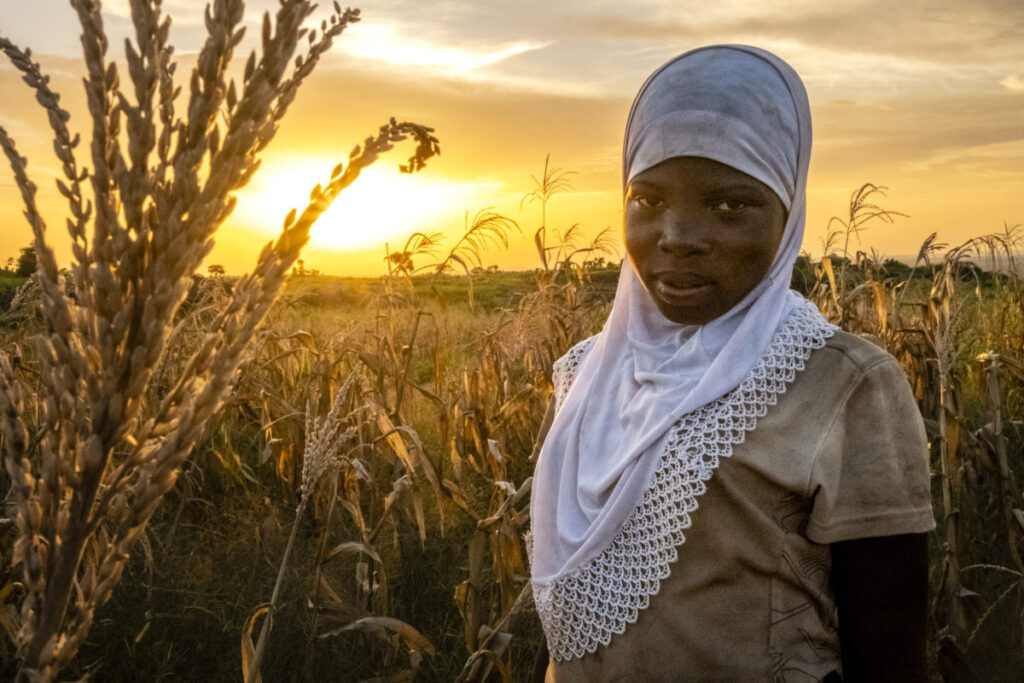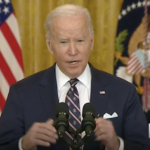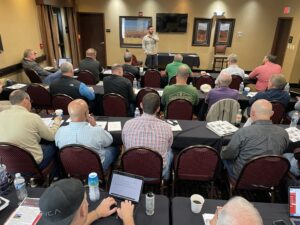
Editor’s note: Sunday, Aug. 27, is Global Hunger Sunday in the Southern Baptist Convention.
NASHVILLE (BP) – For the 5-year-old Burmese refugee, the small bag of rice evoked a living thing. “It’s baby rice,” she proclaimed, hugging it to her chest.
Terry Dale Hudgins, director of the Nashville World Outreach Partnership based at Tusculum Hills Baptist Church in Nashville, had taken a group of Burmese refugees grocery shopping.
“You’d have thought it was a million dollars,” Hudgins told Baptist Press, “the way she was hugging the bag of rice.”

The little girl was too young to comprehend the civil war and ethnic genocide that created the poor conditions hundreds of thousands have suffered in refugee camps in Thailand for decades.
“What we’ve learned from primarily the Burmese refugees, the Karen and others from Burma, hunger was a big issue there,” Hudgins said, “and it was the quality of food. Some children passed away from parasites in stuff they’d eaten while they were in the camps.”
War is a top driver of global hunger, joined by poverty, gender inequality, food waste and extreme weather events such as droughts or floods, report several international feeding ministries including the World Food Program USA.
Southern Baptists have used a multifaceted approach to cooperatively address global hunger since the 1978 inception of the World Hunger Fund, now known as the Global Hunger Relief Fund, said Jason Cox, Send Relief vice president for international ministry.
“It’s important for people to know that Southern Baptists are in the fight against hunger,” Cox said. “The way that they’re in the fight is by giving to the Global Hunger Relief Fund, which is a cooperative effort of Southern Baptists, but then is administered by, or carried out by, Send Relief.
“We’re facing now the greatest global hunger crisis in four decades.”
After a 10-year decline, global hunger surged with the COVID-19 pandemic. An additional 150 million people joined the grips of global hunger from 2019 to 2022, Action Against Hunger reported, with 781 million people suffering from hunger globally.
In the most extreme cases, 50 million people face starvation, including 22 million children. World Vision puts the number of children facing starvation at the combined populations of New York City, Los Angeles, Chicago, Houston, Phoenix and Philadelphia.
Middle Africa suffers the greatest impact from hunger, World Vision reported, with 31.8 percent of the population suffering hunger. Following are East Africa, 28.1 percent; Western Africa 18.7 percent; the Caribbean, 16.1 percent, and Southern Asia, 15.8 percent.
Tackling the problem transcends delivering grain to impoverished areas.
“There are times when we do larger-scale relief projects like that,” Cox said. “What Send Relief does is really more interventions to help alleviate hunger through more sustainable solutions.”
Cox points to two distinctives of Send Relief’s fight against hunger. First, sustainable, community-based solutions address the chronic and root causes of hunger. These initiatives include:
- job skills training;
- livestock feed distribution;
- sustainable farming;
- clean water projects including water wells, irrigation systems, water filters,
- empowering vulnerable and marginalized women, and
- establishing community health programs.
Send Relief facilitated 226 such projects in 2022 that impacted more than 800,000 people and saw more than 51,000 people come to faith in Christ, Cox said. More than 1,200 new areas including villages, neighborhoods or people groups were opened to the Gospel for the first time because of the outreaches, he said.
Gospel impact is Send Relief’s second distinctive in alleviating global hunger.
“This is really important for Southern Baptists to understand,” Cox said, “that when they give to Global Hunger Relief, and partner with Send Relief in using those funds worldwide, they are also partnering with North American Mission Board and International Mission Board on projects that will always be church-centered and Gospel-focused.”
The ministry “brings Scripture to life” for Hudgins, who serves several refugee populations through Tusculum Hills’ partnership with Forest Hills Baptist Church and First Baptist Church of Nashville.
“I thought I understood what poverty was and hunger was based on America’s situation,” Hudgins said. “But seeing it now from the refugees … it makes me ashamed of how much food we waste.
“I can’t even watch the Food Network anymore because of the food they waste. I just think there are so many families that could use that, and you’re just playing with it and throwing it away.”
–30—























